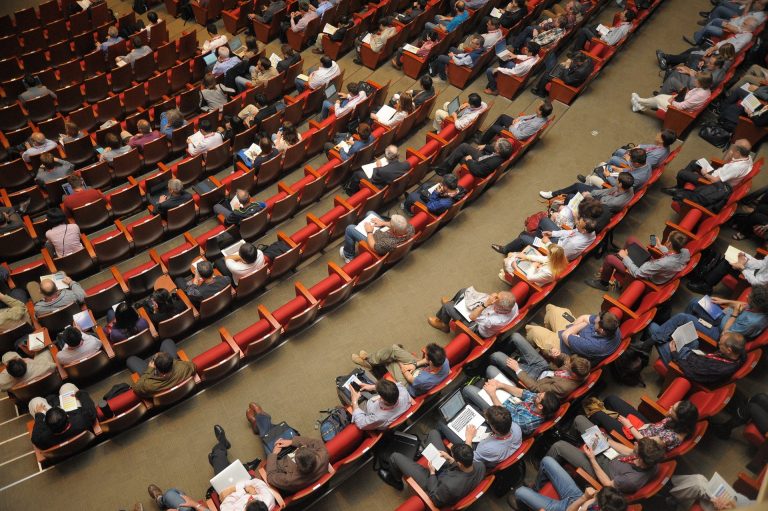Want a Private Divorce?
Admin | Posted on |

By A.J. Grossman III, J.D., LL.M., Esq.
What would you say if I told you about a way to get divorced that avoided publishing all your finances to the public, avoided having to go to Court, avoided the terrible stress and trauma for your children, and allowed you and your spouse to work out all the details of your divorce in private?
Would you say “sign me up?”
Most people would. So, what is this private divorce?
COLLABORATIVE DIVORCE

Is it new?
No, it is not new. It’s been around since 1990. That was 30 years ago!
Why haven’t you heard about it?
The process has been rather exclusive until relatively recently. Only those people who knew about its benefits and found attorneys who had the necessary training could use it.
Will your coworkers, family, and friends know about collaborative divorce? Probably not. Will all divorce lawyers know about collaborative divorce? They should, but probably not.
Some very famous people, including celebrities have chosen collaborative divorce because it is private and confidential. You don’t have to be a celebrity or famous person to take advantage of this private divorce process. Anyone can decide to have a collaborative divorce and thousands have chosen collaborative divorce right here in Florida.
So, want to know more about this exclusive way to get divorced that is likely to cost less than preparing your case for a court trial, will likely finish faster than a courtroom divorce, and will keep your family’s information private?
If you would rather spend more money, deal with clogged court calendars, wait a year or more to get divorced, let a judge make all the decisions about what is best for your family, and expose your children to a higher risk of stress and trauma that will probably affect them well into adulthood, then stop reading now and go do something else.
For those of you who want to know more, keep reading…
ALTERNATIVE DISPUTE RESOLUTION

Collaborative Divorce falls under the big umbrella of Alternative Dispute Resolution (“ADR”). What does that mean?
ADR is used to describe processes or methods for resolving disputes outside of the court room and generally without having a Judge decide.
ADR and Collaborative Divorce is a fantastic alternative to the traditional, divorce court type divorce for many reasons. I will only focus on one for this article, and that one benefit is confidentiality.
PUBLIC vs. PRIVATE

You see, when you have a traditional courtroom divorce, all of your information is public record and available to anyone who wants to see information about your family.
What kind of information?
All of your assets will be public. That means everything you own, like homes, cars, businesses, retirement plans, bank accounts, savings accounts, stocks, bonds, other investments, art collections, coin collections, guns, etc. etc. You get the idea! It’s all public.
It also means that all of your debts will be public record, such as your credit cards, your car loans, your mortgage information, student loans, business loans, private loans, loans from relatives, etc.
Information about your children will be public. For example, the number of children you have will be in the public record. Their initials and year of birth will be made public. Their school zone will be public record. College savings plans for your children will be public record. Whether your child is in private school or public school will be in the public record. If your child has special needs, that information may be in the public record.
Whether you or your spouse has substance abuse issues or had an affair may be made public.
If you are self-employed, the details of your business and its finances may be made public.
The list goes on and on.
If you would prefer not to publish these details about your family to anyone who wants to know, collaborative divorce is a great alternative for you.
What about court hearings and trials? Aren’t those private?
No. Our courtrooms are open to the public and anyone interested in watching your hearing or trial can freely come into the courtroom and watch.
Okay. I get the picture. So how does collaborative divorce keep all of our family details private?
Collaborative divorce happens outside of the courtroom in a private setting. All of the negotiations and discussions happen in a private office shielded from the public.
In collaborative divorce, you will not have any hearings and will not have a trial. Most of your documents will be kept private and will not be filed with the Clerk of Courts. This means that the public cannot see them.
CONCLUSION
Does this sound like a good benefit to you?
If so, I would welcome an opportunity to talk with you about collaborative divorce and the benefits for you and your family.

A.J. Grossman III, J.D., LL.M., Esq. is an Orlando, Florida Collaborative divorce attorney and Florida Supreme Court Certified Family Mediator. He is the founder, CEO, and President of Leap Frog Divorce. In addition to a law degree, he holds a Master of Laws (LL.M.) degree in Dispute Resolution from the world-renowned Straus Institute at the Pepperdine University School of Law. He serves on the Board of Directors for the Florida Academy of Collaborative Professionals and the Orange County Bar Association Family Law Committee and is a Barrister Member of the Central Florida Family Law Inn of Court. AJ is a past Board Member for the Collaborative Family Law Group of Central Florida.
